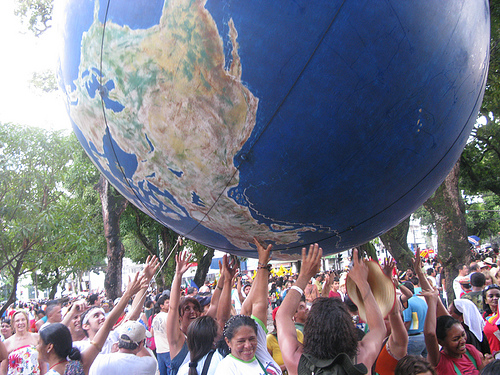

Venezuelans can now buy cell phones for the equivalent of just US $13.95, thanks to a new state-run company that put its first 5,000 units on the market yesterday in Caracas.
Eager shoppers snapped up the first bunch, and the AP reports that another 5,000 will be in stores soon.
The tiny phone, dubbed “El Vergatario,” is equipped with a camera, radio, and mp3 player.
The firm that makes them, a joint venture by the governments of Venezuela and China, is known as Vetelca. This is not an isolated effort, but rather, part of a broader plan to promote affordable technology (you may recall the “Bolivarian Computer,” and the adoption of open-source Linux operating systems).
“El Vergatario” is only sold on the domestic market right now, but depending on its success, it could eventually become an export. And because it is literally the cheapest cell phone in the world, it is likely to be quite competitive.










 Today is an exciting and historic day for Venezuela, as it was elected a member of the United Nations Economic and Social Council. ECOSOC is a vitally important coordinating body of the United Nations and serves as a “central forum for the discussion of economic and social issues.”
Today is an exciting and historic day for Venezuela, as it was elected a member of the United Nations Economic and Social Council. ECOSOC is a vitally important coordinating body of the United Nations and serves as a “central forum for the discussion of economic and social issues.”
